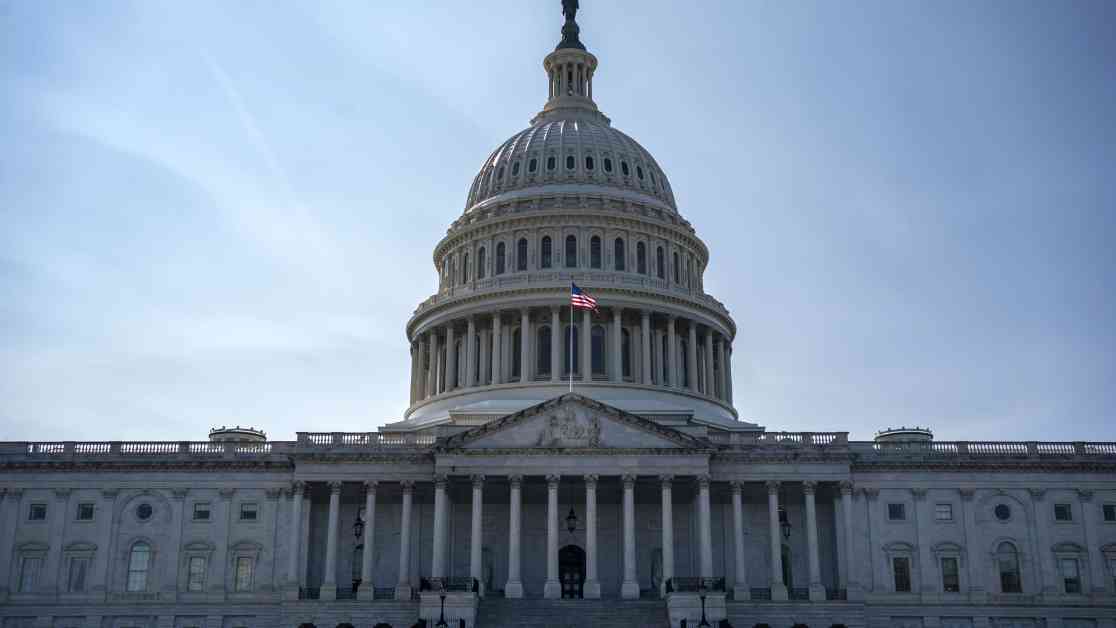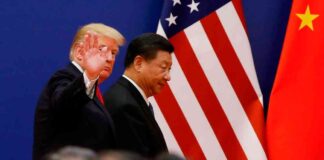Congress Unites in Tough Stance on China: A Rare Bipartisan Agreement
Amidst the hustle and bustle of the U.S. Capitol in Washington, DC, lawmakers from both the Senate and U.S. House of Representatives have returned to work following their August recess. This week, they have taken up a series of measures aimed at countering China’s technological, political, and economic influence, showcasing a rare moment of bipartisan agreement on the issue.
## A Stronger Stance on China
From drones to drugs, House lawmakers have made it clear that they are prepared to take a tough stance on China. A total of 28 bills were introduced during “China Week,” with the majority being led by Republicans. While some Democrats have criticized the timing of these measures as a strategic move ahead of the November election, many of the bills have garnered bipartisan support.
According to Craig Singleton, a senior China fellow at the Foundation for Defense of Democracies, lawmakers now see little downside risk in adopting a tougher stance on China. This shift in attitude comes at a time when viewing China as a geopolitical rival is one of the few issues that both Republicans and Democrats can agree on.
## Impact on U.S.-China Relations
China has expressed concerns over the legislation, warning that it could strain one of the world’s most important bilateral relationships. Despite ongoing efforts to improve ties between Beijing and Washington, the Chinese government has vowed to take “strong and effective measures” in response to the measures being proposed in Congress.
It is important to note that all legislation must also be passed by the Senate before it can be sent to President Joe Biden for approval. With a limited number of days left in the Senate’s session for the year, the fate of these measures remains uncertain. However, the success of these bills in the House could pave the way for even stronger regulatory actions in the future.
## Notable Measures Approved
### Biotech Companies
One of the first bills to pass was the Biosecure Act, which aims to prohibit federal contracts with Chinese biotech companies and those that do business with them. Supporters of the bill argue that such measures are necessary to protect Americans’ genetic and health data from Beijing. However, Chinese companies involved in cancer research and manufacturing for American drugmakers have pushed back, stating that data privacy is not at risk and that the legislation will limit competition.
### Hong Kong
Lawmakers also overwhelmingly passed a bill that could lead to the closure of Hong Kong’s economic and trade offices in the U.S. if they are found not to be running with a “high degree of autonomy” from China. This move comes in response to the crackdown on dissent in Hong Kong following mass anti-government protests in 2019. While the Hong Kong government has criticized the bill as politically motivated, supporters argue that it is necessary to uphold the territory’s autonomy.
### Drones
Another bill targets Chinese drone manufacturer DJI, seeking to bar new drones from the company from operating on U.S. communications infrastructure due to national security risks. DJI, which sells more than half of all drones in the U.S., has refuted these claims, stating that the legislation is driven by xenophobic narratives and would harm not just American hobbyists but also businesses and public safety agencies.
### ‘China Initiative’
Lawmakers were divided over the revival of the Justice Department’s “China Initiative,” a program aimed at countering intellectual property theft at universities and research institutions. While some argue that the program unfairly targets ethnic Chinese scientists, others believe it is necessary to protect national security interests. The measure ultimately passed in the House with a vote of 237-180.
### Foreign Farmland Purchases
A bill limiting the sale of agricultural land to foreign nationals from Russia, China, North Korea, and Iran has raised concerns about discrimination. Supporters argue that the measure would improve oversight of foreign farmland purchases near sensitive sites, while critics question its impact on U.S. agriculture and international relations.
### Electric Vehicles
Lawmakers narrowly passed a measure tightening the definition of Chinese components that disqualify vehicles from receiving U.S. EV tax credits. This move has sparked debate over its potential impact on efforts to promote electric vehicles and transition to green technology. While China leads in EV manufacturing, very few of its vehicles are sold in the U.S., prompting concerns about market competition and innovation.
### Scientific Cooperation
A bill requiring congressional notification before renewing or extending science and technology agreements with China aims to prevent the exploitation of partnerships by the Chinese Communist Party. Supporters argue that such measures are necessary to protect sensitive technologies that could threaten national security. The expiration of the Science and Technology Agreement between the U.S. and China has raised concerns about the future of academic cooperation and collaboration on issues such as climate change and public health.
In conclusion, the recent flurry of legislative activity in Congress reflects a growing bipartisan consensus on the need to address China’s influence across various sectors. While the impact of these measures remains to be seen, they signal a shift towards a tougher stance on China that could have far-reaching consequences for U.S.-China relations. As lawmakers continue to navigate the complexities of the U.S.-China relationship, it is clear that addressing Beijing’s influence will remain a key priority for both parties in the years to come.






















